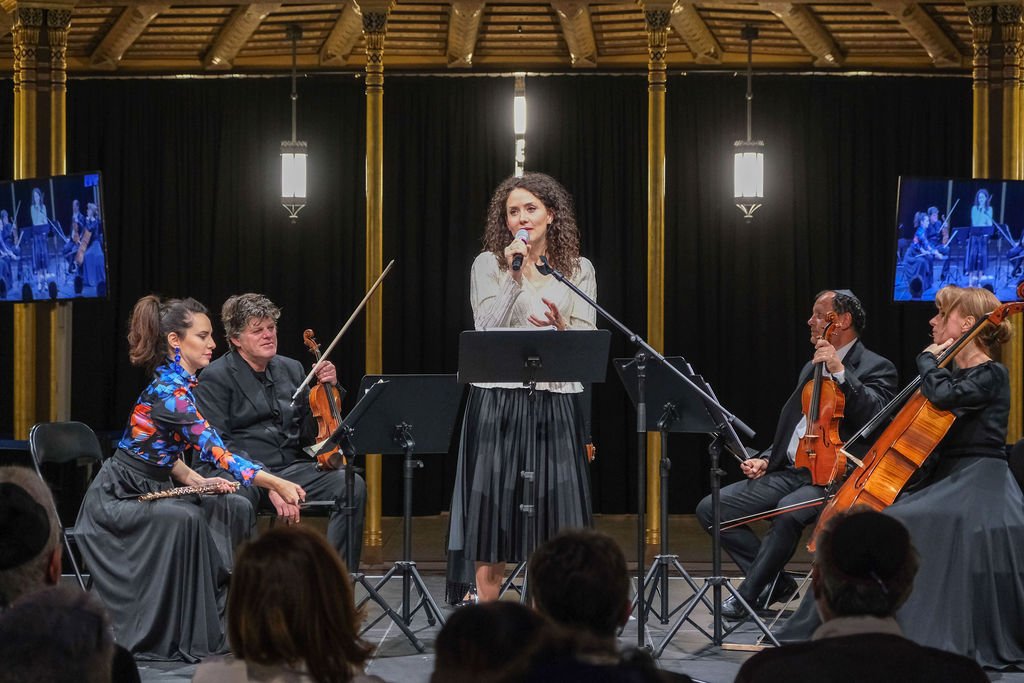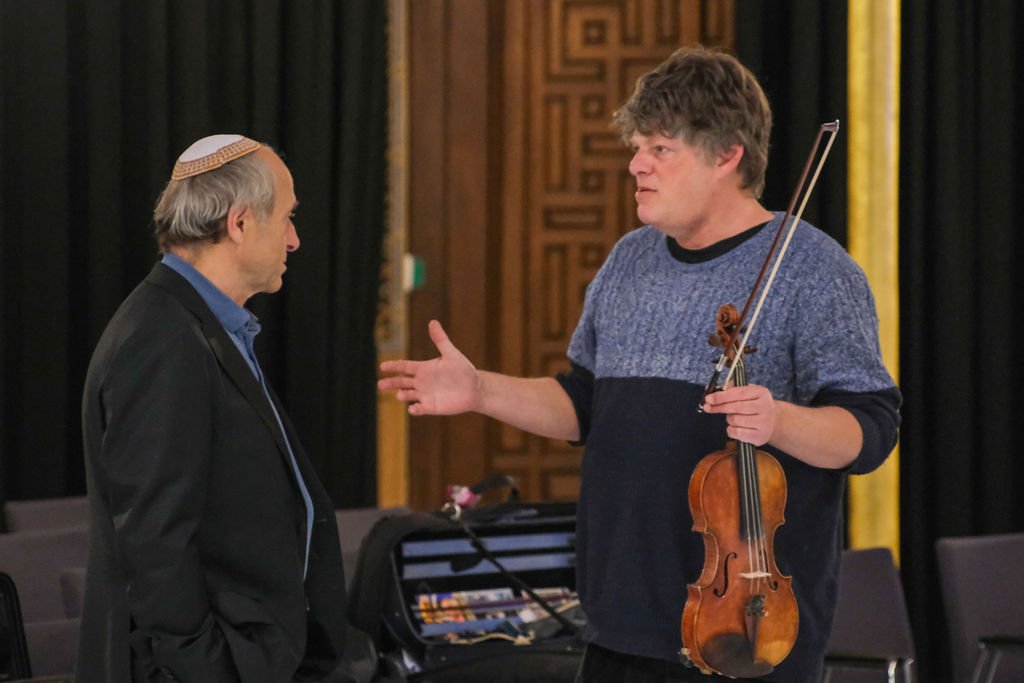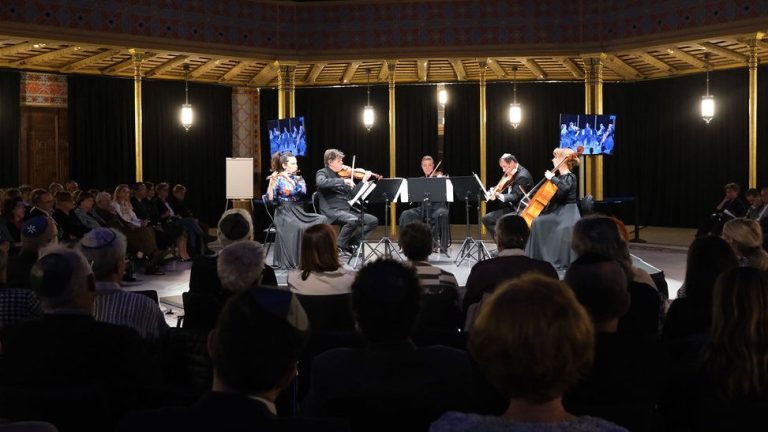Under the splendid dome of the newly renovated Rumbach Street Synagogue, designed by the Austro-Hungarian architect Otto Wagner in 1872, an especially inspired program took place on October 9. Members of the Budapest Festival Orchestra (BFO) and guest artists performed an entertaining mix of musical styles.
Hosted by the National Hungarian Jewish Cultural Association (OMIKE), the program’s wide compass offered musical works from Beethoven to Yiddish and Hebrew songs. The guest artists were the Israeli violinist and arranger Guy Braunstein, and singer Alma Sadé.
With Maestro Iván Fischer as our musical tour guide, we were treated to Braunstein’s quintet arrangement (flute and string quartet) of Beethoven’s Sonata #4 for Violin and Piano, Op 23. Thanks to the perfect acoustics in this octagonal sanctuary, the performance by violinists Braunstein and Violetta Eckhardt, violist Gábor Sipos, cellist Rita Sovány, and flutist Gili Schwarzmann, brought this sparkling work into a special light and luster from all sides.
In keeping with OMIKE’s eclectic approach to their cultural programs, the musical scores on this evening were alternated with two literary episodes: one being a pedagogical guide to the Hebrew alphabet, and the other was István Znamenák’s reading of György Kardos’ “Seven Days of Avraham Bogatir.”

Sade’s affecting rendition of Ottorino Respighi’s 1914 “Il Tramonto” (The Sunset) set in Italian from an English lyric poem by Percy Bysshe Shelley for mezzo-soprano and string quartet, excelled for its clarity, passion, and superb vocalism. It’s essentially a sung monologue not unlike an operatic recitative, and it’s inexplicably not often programmed.
After an athletic performance of Kodály’s angular, brash, and ultimately lyrical Serenade for two violins and viola, Sadé appeared again to sing two more works: the first was a suite of five charming Yiddish songs: “The Yiddish Cabaret” by Leonid Desyatnikov. Based on songs sung in Jewish cabarets in Warsaw and Lodz between 1919 and 1939, Desyatnikov transcribed them for voice and string quartet. Sadé, a noted member of Berlin’s Komische Oper (which often presents Yiddish musical treasures), employed her consummate actress skills to convey the charismatic humor and sentimentality of that generation’s era in Europe.

The final piece was a lush and romantic modern song, “A Gentle Touch” in Hebrew, by Israeli composer Yoni Rechter, and which was cleverly arranged by Braunstein for singer, string quartet and flute. My only complaint with this lively program is that the audience had no translations of the texts of the three languages Sadé sang in. Our ears, however, appreciated their collective beauty.
[Addendum: Braunstein, a former concertmaster for the Berlin Philharmonic and frequent guest soloist with the BFO, appeared in Budapest in December 2021 for one of BFO’s Surprise Concerts, performing his own arrangements of the Beatles’ “Abbey Road” album. His Violin Concerto „for John, Paul, George and Ringo” was a major audience delight that we hope to hear again.]











